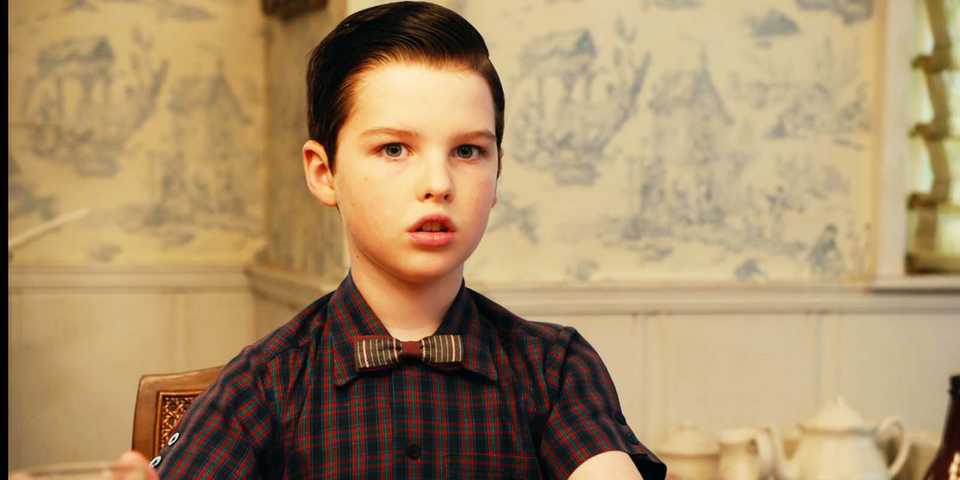From the very beginning, Young Sheldon was meant to show how Sheldon Cooper became the genius we saw in The Big Bang Theory. But by the time Iain Armitage’s Sheldon hit a major milestone in season 2 episode 9, the show started heading in a different direction—one that would ultimately influence how and why the series ended after seven strong seasons.
Let’s break down how this single plot shift changed everything for Young Sheldon, what fans searched most about it, and how it led to the beginning of the end.
Why Sheldon’s Graduation in Season 4 Changed Everything
Sheldon Finished High School Way Ahead of Schedule
By the start of Young Sheldon season 4, the young genius had already outgrown high school. In episode 1, titled “Graduation,” Sheldon finally completes high school—years ahead of kids his age. He becomes the valedictorian while his twin sister, Missy, graduates from middle school. It’s a rare and emotional moment that shows how far they’ve come as siblings, despite their differences.
But this episode wasn’t just about diplomas. It also featured Amy Farrah Fowler’s voice cameo, confirming Sheldon and Amy have a son in the future. This tied the prequel back to The Big Bang Theory, exciting longtime fans.
More importantly, this was the point where Young Sheldon truly began to shift focus—away from childhood tales and toward more adult, mature storylines.
Iain Armitage as Sheldon: Starting College Meant Saying Goodbye to Medford High
The Family’s Routine Changed Completely
After graduating, Sheldon heads to college at East Texas Tech. That sounds normal—until you remember he’s still a kid. Though Meemaw drives him back and forth, things slowly begin to change. He’s no longer at the dinner table every night. And gradually, Young Sheldon stops being about school antics and family dinners.
The separation is subtle at first, but over time, it becomes clear: Sheldon is growing up, and the show is following suit. Unfortunately, this meant leaving behind other characters like Missy and Georgie, whose stories were still rooted in Medford High.
That divide impacted the show’s tone. What was once a warm, family-centered sitcom became a two-part drama—half about Sheldon at college, half about his family navigating life without him.
The Coopers Became More Relatable Than Sheldon
Why Viewers Connected More With Missy, Georgie, and Mary
As Sheldon’s college life played out, many fans began to feel his story had already been explored in The Big Bang Theory. We’d seen his quirks, his research, and his friendships at Caltech. There wasn’t much new to say.
On the other hand, the rest of the Cooper family became more relatable. Georgie’s struggles, Missy’s growing pains, Mary’s deepening faith, and George Sr.’s quiet challenges as a father made for compelling TV. Viewers connected with them because their lives felt real and grounded.
In fact, many fans started tuning in because of these characters—not Sheldon. This shift in focus quietly moved the spotlight away from the original lead.
Sheldon’s Graduation Set the Stage for the End of Young Sheldon
Why Season 4 Was the Beginning of the End
Although Young Sheldon didn’t end until season 7, the real countdown started the day Sheldon graduated.
CBS had been intentionally vague about timelines, stretching out Sheldon’s childhood for as long as they could. But with graduation, the story could only go in one direction. As he aged, it became harder to keep up the innocent tone of earlier seasons. And as the show moved closer to The Big Bang Theory‘s timeline, options for fresh stories started to shrink.
At the same time, George Sr.’s death—which Sheldon had referenced in TBBT—loomed over the show. That emotional moment was saved for the final season, making it clear that the show had reached its natural conclusion.
Could Young Sheldon Have Continued Without Sheldon?
A Missed Opportunity: Rebranding as The Coopers
With Sheldon slowly fading into the background, many viewers wondered—why not rebrand the show altogether? Much like how Roseanne became The Conners, Young Sheldon could have shifted into The Coopers.
The characters left behind in Texas—Missy, Mary, Meemaw, Georgie, and even Mandy—had enough depth and storylines to carry on without Sheldon at the center. Unfortunately, that never happened.
While Georgie & Mandy’s First Marriage now exists as a spinoff, it lacks the emotional depth and broad family appeal that Young Sheldon had at its peak. Fans still miss the original dynamic, and many feel the show could have evolved with or without its genius lead.

What People Also Ask About Sheldon’s Graduation and Young Sheldon
Q: What episode does Sheldon graduate in Young Sheldon?
A: Sheldon graduates in Young Sheldon season 4, episode 1, titled “Graduation.”
Q: How old was Sheldon when he graduated high school?
A: Sheldon was just 11 years old when he finished high school, highlighting his extraordinary intelligence.
Q: Why did Young Sheldon end after season 7?
A: The show ended because Sheldon’s college journey and George Sr.’s death marked a natural endpoint. Also, the shift in focus made continuing the series under the same title difficult.
Q: Is Young Sheldon based on true events?
A: No. While it draws inspiration from The Big Bang Theory, Young Sheldon is a fictional show created by Chuck Lorre and Steven Molaro.
Q: Could Young Sheldon have continued without Sheldon?
A: Yes. Many fans believe the show could have been rebranded as The Coopers, focusing on the rest of the family after Sheldon moved away.
Q: Is Iain Armitage still playing Sheldon?
A: As of the show’s final season, yes. Iain Armitage played Sheldon until the end of Young Sheldon season 7.
Conclusion
Iain Armitage as Sheldon in Young Sheldon season 2 episode 9 gave us more than just another look into a boy genius. It marked the beginning of major changes—story shifts, emotional depth, and eventually, the show’s graceful exit.
Though Sheldon may have started the journey, it was the heart of the Cooper family that truly made fans fall in love with the series.



